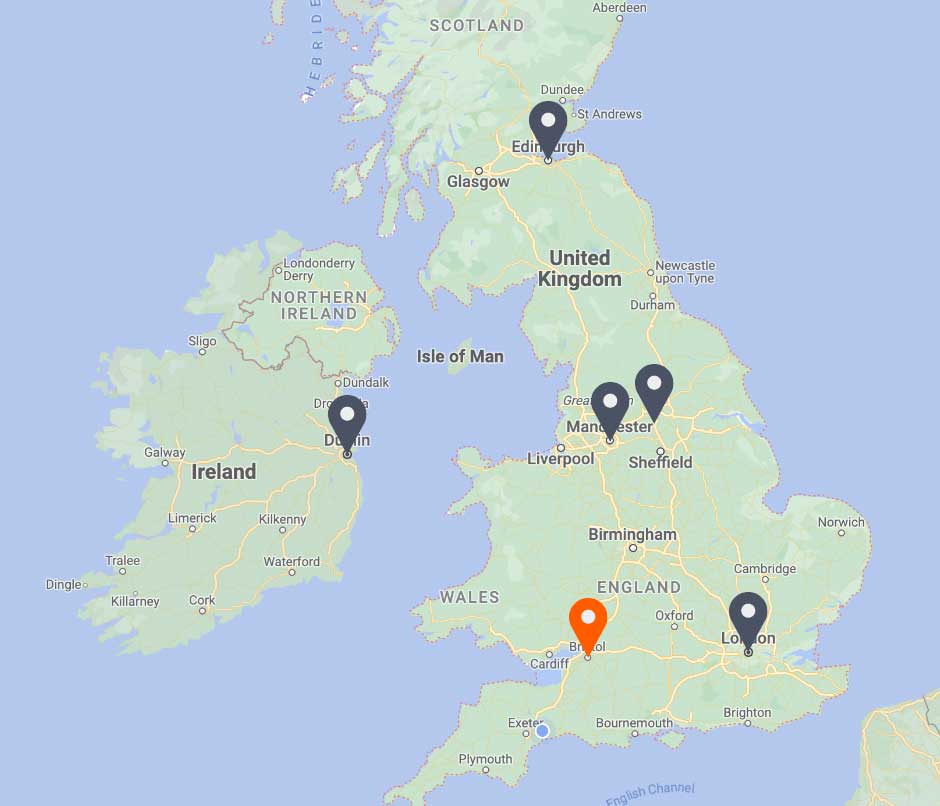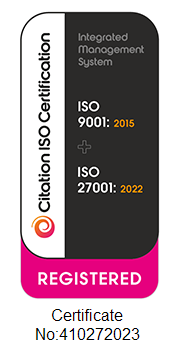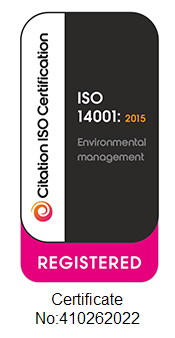
CSRD Reporting | CSRD Requirements
CSRD Reporting | CSRD Requirements
Achieving CSRD Reporting Compliance with Energy Technical Services and EcoOnline
For companies navigating the complexities of CSRD requirements, Energy Technical Services, in partnership with EcoOnline, provides an all-encompassing energy and emissions reporting and analysis solution. Energy Technical Services offers comprehensive support, helping businesses meet CSRD timelines and ensuring compliance with EU CSRD regulations. Accurate and data-driven reporting is essential, but it also presents an opportunity for companies to gain valuable insights and drive long-term improvements.
The Corporate Sustainability Reporting Directive (CSRD) marks a significant shift in how companies report on their sustainability performance. Coming into force in 2024, the EU CSRD introduced stricter regulations for large companies to disclose detailed information on their environmental, social, and governance (ESG) metrics. This includes greenhouse gas (GHG) accounting across Scope 1, 2, and 3 emissions. With the growing emphasis on climate responsibility, the CSRD reporting framework is designed to replace the Non-Financial Reporting Directive (NFRD) and help the EU meet its ambitious climate goals, including the UN Sustainable Development Goals (SDGs) and the 1.5°C global warming limit.
The CSRD regulation is a central component of the EU’s broader sustainability and climate strategy, making corporate transparency more robust and ensuring that companies align their strategies with the EU’s climate commitments. The shift from voluntary to mandatory reporting through CSRD compliance underscores the EU’s push for greater accountability from businesses.
CSRD is more than just a reporting directive. It’s an opportunity for companies to align their operations with long-term climate goals and make meaningful contributions to sustainability. By complying with CSRD regulations, businesses demonstrate their commitment to responsible climate action, which can enhance their reputation and attract sustainability-focused investors.
Which Companies Need to Comply with CSRD?
Nearly 50,000 companies across Europe and globally will be subject to the corporate sustainability reporting directive.
This includes large EU companies, non-EU companies, and small and medium-sized enterprises (SMEs) listed on the EU stock exchange. The CSRD requirements specifically target businesses that meet at least two of the following criteria:
- Employ more than 250 people
- Generate a net turnover between €10 – €50 million
- Hold a balance sheet between €5 – €25 million
What are CSRD Requirements?
The CSRD compliance process introduces a new level of rigour in ESG reporting, requiring companies to provide auditable and verified data. This is a crucial shift, as ESG-related data must now be independently evaluated by a third-party auditor or consultant, ensuring its accuracy and reliability.
Under the CSRD timeline, companies are required to report across several key areas:
- Financial data: Metrics related to the company’s financial performance in relation to sustainability goals.
- Governance data: Information on how the company is governed in alignment with sustainable principles.
- Emissions data: Comprehensive reporting on GHG emissions across Scope 1, 2, and 3.
- Resource data: Information on resource consumption and efficiency.
- Climate risk data: Data evaluating the company’s exposure to climate-related risks.
- Social/HR data: Details on the company’s social impact, diversity, and employment practices.
Simplify Your CSRD reporting now with Energy Technical Services
Key features include:
- Powerful GHG Calculation Engine: Automatically selects, converts, and computes greenhouse gas (GHG) emissions and CO2 equivalents using global emissions data. This ensures transparent calculations and compliance with CSRD regulations.
- Climate Accounting: End-to-end data collection, calculation, analysis, and reporting in line with all ESRS standards. This ensures that companies are well-prepared for drafting their CSRD disclosure.
- Physical Climate Risk Analysis: Enables companies to manage and assess material climate risks, ensuring compliance with CSRD requirements and reducing exposure to climate-related financial risks.
- Scenario Analysis: Provides insights into how different climate scenarios may impact the business, ensuring companies are prepared to respond to both acute and chronic climate risks.
- Audit-Ready Workflows: Assists CSRD preparers in ensuring data quality and availability for third-party audits, which are a key component of CSRD compliance.
Start Early to Maximise CSRD Benefits
Early investment in CSRD reporting is key to ensuring long-term success. By aligning with EU CSRD regulations ahead of time, companies can avoid CSRD non-compliance penalties while also gaining a competitive edge in the marketplace. Energy Technical Services offers end-to-end support for businesses, from data collection and analysis to report submission, ensuring that your company remains compliant and sustainable.
Using EcoOnline’s powerful environmental software, Energy Technical Services provides businesses with a robust platform that simplifies CSRD reporting and enhances data management processes.
Our team ensures seamless integration of CSRD compliance, providing your organisation with the framework it needs to succeed in an increasingly sustainability-driven world.

Achieving CSRD compliance involves a clear and structured approach:
- Verify that your company meets the CSRD criteria.
- Conduct a double materiality assessment, considering both climate risk data and the company’s social impact.
- Develop data collection and management processes for financial, emissions, governance, and resource data.
- Report on Scope 1, 2, and 3 emissions in line with CSRD requirements.
- Incorporate sustainability audits and ensure third-party validation.
- Submit reports to stakeholders in both machine-readable and human-readable formats, ensuring accessibility.
If you have any questions or would like to discuss further what you should be doing, ETS is here and willing to help.


CLOSE X
Phil Bilyard Operations Director
Phil has a Graduateship with the City &Guilds and a HND in Engineering. He is an Incorporated Engineer (IEng), Chartered Energy Manager, ESOS Lead Assessor and CIBSE Accredited Air Conditioning Inspector. Phil is also a Full Member of the Energy Institute (MEI), Institution of Engineering and Technology (MIET) and an Associate Member of CIBSE (ACIBSE).
Phil started his career providing specialist engineering support in the Army’s Corps of Royal Engineers before pursuing a career in facilities management. He has work across a range of sectors and undertaken a number of roles including Building Services Engineer, Electrical Specialist, Project Manager and Contract Manager. His expertise includes Air and Water Quality Management, Low Carbon Consulting and Project Management.
After joining ETS in 2010 as a Senior Consulting Engineer, Phil quickly progressed into the role of Operations Director. His role at ETS includes managing our operational team in the delivery of technical consultancy and energy management for our Retail and FM & Property clients.
Smart energy management as a service can be broken down into five steps:
The process does not have to be linear and customers can start the journey at any stage, from initial planning through to energy audits.
Smart – think about what you’d want the outcome to be, what resources you need to apply and over what timeframe. ETS will gather all your relevant data sets and deploy experienced engineers to audit your facility and major energy users. Clever controls specialists will interrogate your control systems and experienced energy managers will make sense of all this information so that we can advise, manage, optimise and drive down your real time energy consumption.
The benefits of csrd reporting

IMPROVED ENERGY AWARENESS
CSRD reporting can enhance the internal understanding of carbon emissions and empower sustainable communication.

TRACKED ENVIRONMENTAL IMPACTS
Businesses can monitor the full scope of CO2 emissions and discover the potential risk.

TRANSPARENT DATA
CSRD supports organisations to provide stakeholders with greater energy efficiency and emissions transparency.








































































